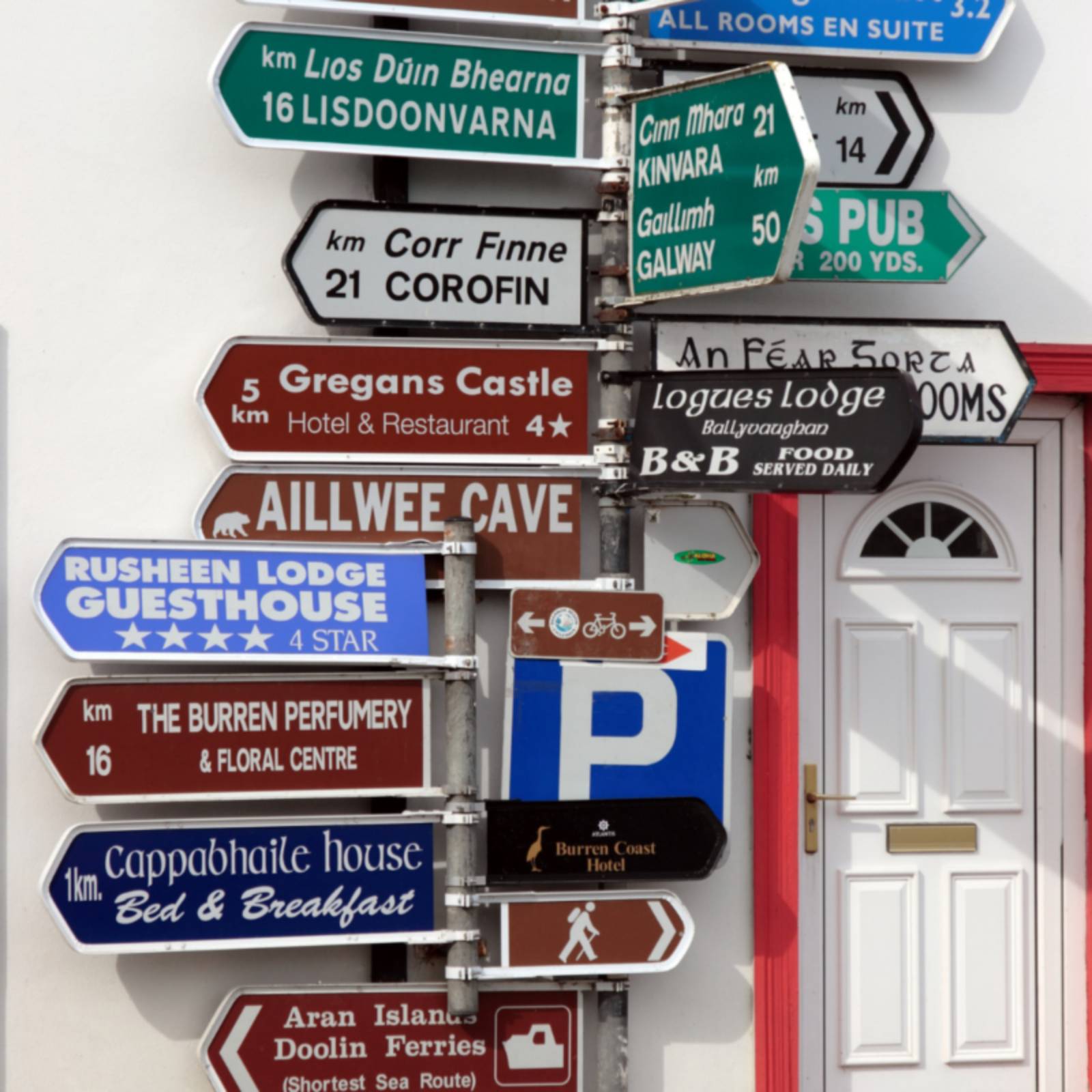Do place names really matter
19 April 2022
I’m sure you can imagine, here at Irish Homelands, we’re borderline obsessed with place names. We’re excited by their origins, their spelling, the stories that helped form them and the sentimental value that these words bring to our lives. To us, place names are much more than a word. They’re a glance into history, an insight into our ancestral roots, and a sound that resonates through us and our families, bringing hope, comfort and joy.

Now, as we grapple with the tensions between ancient Ireland and the new Ireland that dons a digital age and a sense of globalism, the question is being asked, do place names still matter so much?
Preserving information
Many would argue that the Irish fixation on place names began with a need to direct and preserve information. Our ancient ancestors did not have access to Google Maps, or Siri to tell them how to find places.
They relied on language, visuals and associations to lead the way. For example, when we see the word ‘ard’ within a place name, in Irish it means ‘Hill’ or ‘Tall’. When navigating the Irish landscapes, knowing you were in search of higher ground would be extremely helpful. Or the word ‘béal’, meaning ‘mouth’. Searching for the mouth of a lake, a river or a body of water would be a pretty good bet!
Many of our modern peers may believe that place names just don’t carry the same weight as they once did as we enter a world of accessibility and instant gratification. As well as this, our ancient place names were a way of preserving the Irish story. They were conversation starters and allowed tradition, memory and folklore to live on throughout the ages.
StorytellingWhether the stories that inspired place names across Ireland were true or not, didn’t matter. What mattered was that the stories, mythology and craft of the storyteller lived on.
Lis Na Muc, The Fort of the Pigs, now known as Swineford, tells us that at a time pigs roamed this area freely!
Or the well known Lough Derg, translates as Red Lake, but was originally named Loch Deirg, meaning lake of the red-eye; This “red-eye” belongs to an ancient character from Irish mythology named Eochaid, sometimes known as the ‘horseman of the heavens’ or the ‘god of lightning’!
But sure what's in a name?Nowadays, when we name a new housing development, or area, the same thought and careful consideration may not be given to the final choice. Place names like “meadow view” in places without any views of meadows, or “maple brook” in areas that couldn’t be further from maple trees or babbling brooks, are becoming more and more common.
But maybe that’s okay.
Maybe there’s a place in this new Ireland, for the old and the new. Maybe there’s room for place names that are chosen because they exude a sense of comfort and warmth, even if they don’t reflect the landscape.
Maybe they reflect the people, the families, the memories and the good times. And that’s why our townlands hold a special place in our Irish hearts. They connect us to the past, the present and the future. They hold a part of us that runs deeper than we could ever imagine. They tell stories of adventure, of landscape, of culture and change. And they now hold a piece of us, that will always remain there.
Let us know your thoughts on the importance of place names! What does yours mean to you?
Get a Irish Homelands print today, and give your place name the love and respect it deserves. Create your Townland print HERE